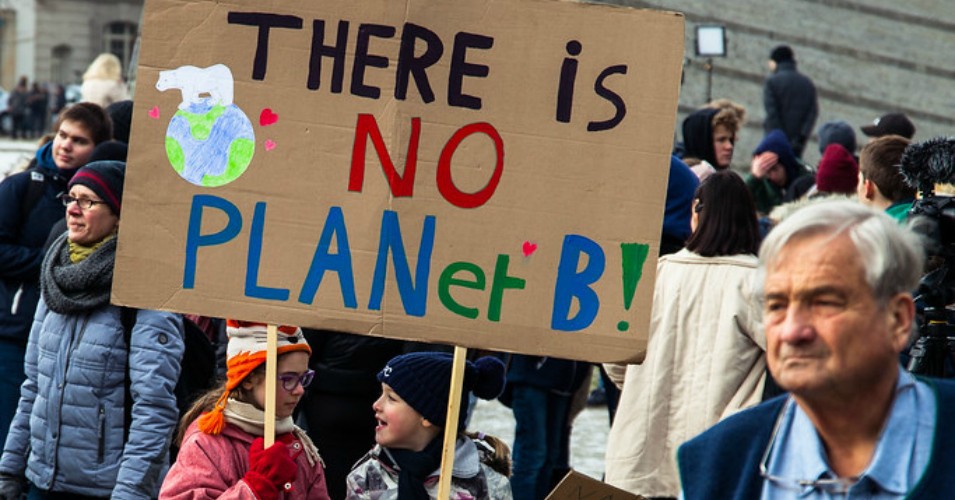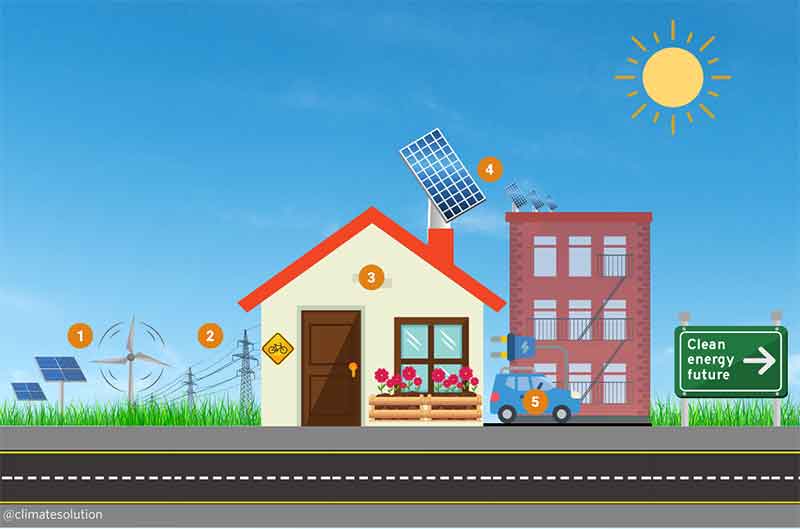
Ed Yong is a very insightful science journalist. In an article published in The Atlantic in September Yong lists what he calls nine errors of intuition, conceptual errors that still hamstring the US pandemic response. Remarkably many of Yong’s errors of intuition offer valuable insight into the global failure to enact effective climate mitigation.
The successful and not very successful attempts to mitigate Covid-19 by differing countries should be valuable learning for governments faced with the existential climate crisis. For at least three decades governments around the world have failed to mitigate the accidental climate sideffects of our use of fossil fuels. Have our intuitions wrongfooted our conception of the climate mitigation problem?
Are we still making ‘conceptual errors’ in our mitigation planning and implementation? Do we suffer from ‘magical thinking’? Are we caught in a ‘reality trap’? Have we pursued a ‘serial monogamy of solutions’ when we should have been hammering GHG emissions with the whole kit bag of policies, especially emergency coalition governments and a regulated managed decline of fossil fuel production?
Have we been prey to ‘false dichotomies’? Countries that reacted fast, that contained the virus early, have been far more successful than countries that dithered, particularly out of economic concerns. Turns out that containing the virus effectively was good for business while not acting effectively led to much worse economic dislocation.
“(W)e presumed a trade-off between saving lives and saving the economy,” says Danielle Allen, a political scientist at Harvard. “That was foolishness of the most profound degree.” The two goals were actually aligned: Epidemiologists and economists largely agree that the economy cannot rebound while the pandemic is still raging. Ed Yong
Governments who initially wanted to let the virus rip in order to get to herd immunity blew containment, risked overwhelming their health care services, and then had to compensate with draconian lockdowns that could be only partially effective.
Climate wise, powerful economic actors, refusing to be proactive about mitigation out of concern for the economy and their own particular economic growth, have not allowed effective mitigation. A global ‘immunity via collective inertia‘ has resulted. There is a lack of ambition to raise Paris Accord targets in line with what the climate budget science requires. There is a lack of urgency to use the needed pandemic recovery stimulus to build a much more resilient economy as well as reduce emissions. All but the most intransigent climate deniers recognize that lack of effective mitigation risks the collapse of modern economies but money making this quarter remains vastly more important than climate mitigation. Damage from extreme weather or sea level rise will not force governments to initiate the equivalent of a climate lockdown. But the prospect of needed draconian intervention while there is still time is now emerging.
The ‘normality trap’. Certainly now with the dislocation of the pandemic people crave normality, but even before Covid-19 we have been living in unprecedented and uncertain times. The populist surge is a reaction to great change that is threatening to many groups either in rustbelts or in emptying churches, emptying rural areas, etc. There is a growing conservatism catalyzed by rapid progress that overturns existing order.
People don’t want to even consider a world where they might have to live without cars, planes or burgers. Advocates of climate mitigation have been forced to message that needed emission reduction can be accomplished with merely a tweak of everybody’s very fortunate economy and lifestyles. This brightsiding was maybe understandable a decade ago but it is clearly denial today. This messaging – a puny carbon tax or 100% renewables as climate salvation – is no longer tenable, increasingly restrictive and mis-education we can’t afford. Especially in a world of culture wars, paralyzed partisan government and Babelesque misinformation.
‘Magical thinking’. A craving for normalcy also leads to magical thinking. Trump, Bolsonaro and many other political leaders did not want the pandemic to get in the way of their agenda or did not want to implement heretical government intervention so they played down the Covid-19 dangers: ‘It’s just another flu’ or ‘it will go away with summer warmth’. Magical thinking about climate change has always undermined attempts at mitigation. Decades of kicking the climate mitigation can down the road (because carbon dioxide is really just plant food or we will have the technology to pull the carbon back out of the atmosphere or build giant sunshades in orbit) has been the equivalent of recommending going maskless or ingesting hydroxychloroquine.
Governments, media and publics continue to focus upon the monotonic climate dangers like extreme weather or sea level rise instead of the potentially existential threatening runaway warming or abrupt climate change. In developed, western countries these incrementally building dangers are still only a minor inconvenience, like a cold or a minor increase of death rates in the old and infirm (who are going to die anyway).
This magical thinking remains pervasive. Even the climate equivalent of public health, the climate intelligentsia, greatly minimize both the climate dangers and the deep systemic changes that effective mitigation requires. For example, it is estimated that emission reduction promised by the US and EU is only a fifth of what is needed to achieve climate safety. There has been a $2.7 trillion investment in fossil fuels since the Paris agreement. Exported emissions is the biggest climate scandal you’ve never heard of – if climate is an existential crisis, why are the world’s main fossil fuel exporters continuing to expand production?
“To follow a 1.5C- consistent pathway, the world will need to decrease fossil fuel production by roughly 6% per year between 2020 and 2030. Countries are instead planning and projecting an annual increase of 2%, which by 2030 would result in more than double the production consistent with the 1.5C limit.”
The ‘complacency of inexperience’. With Covid-19 we can look back a century at an almost identical pandemic in 1919, the lives lost and damage done, the mitigation efforts then, both successful and overridden, but there is no equivalent with climate change. Yes, scientific study of previous eras offer some limited insight, but the effects of burning fossil fuels (and the landuse changes fossil fuel use allow) are unprecedented. In this novel situation our intuition is not action but complacency; there is no alarming, remembered example of collapse, pain, death and loss.
This complacency is made worse by leaders constantly undermining the arguments for action with their continuing procrastination. ‘Climate change can’t be that bad if we are still exploring for oil and building pipelines’. Humans watch their leaders actions in novel situations and take their cues. Implicatory denial -the refusal to act as if climate is the existential emergency we know it is – is society-wide and this complacency is a foremost impediment to effective mitigation.
The ‘reactive rut’ precludes long range planning. Three decades of failure seems to be reinforcing our inability to imagine effective mitigation. We need urgent 7-10% annual emission reduction urgently but are instead deluding ourselves with messaging like net zero by 2050.
“(W)e don’t understand that things look fine until right before they’re very not fine,” says Beth Redbird, a sociologist at Northwestern…. Pandemic data are like the light of distant stars, recording past events instead of present ones. This lag separates actions from their consequences by enough time to break our intuition for cause and effect. Policy makers end up acting only when it’s too late. Ed Yong
That human intuition could hamstring needed human action is not news in the history of science. Man isn’t the measure of the cosmos; human perception of reality is always a reality bubble, a small subset of wider reality. But obviously – with a cascade of feedbacks potentially only some few years of continuing fossil fuel use away – these conceptual errors frustrating needed effective climate mitigation have to be overcome, urgently.
Unfortunately there is only limited precious time for climate learning and escaping these conceptual errors. A needed first step might be a detailed accounting of our ‘habituation of horror’ – how as each of our governments failed to act on climate we have allowed a potentially humanity threatening diagnosis to maybe become fatal.
Canadian climate activist Seth Klein has a great new book on finally taking the climate emergency seriously – A Good War: Mobilizing Canada for the Climate Emergency. Klein offers these markers to tell you if your government is now taking climate change seriously:
- It spends what it takes to win;
- It creates new economic institutions to get the job done;
- It shifts from voluntary and incentive-based policies to mandatory measures;
- It tells the truth about the severity of the crisis and communicates a sense of urgency about the measures necessary to combat it.
Intuition can be faulty. Seems most US Republican voters thought that the Trump Admin was doing a good job in mitigating the pandemic. Better to make sure that your government is taking climate seriously. There will be no filling hospitals to force needed action. No climate vaccine. It’s way past time to insist that fossil fuels really stay in the ground. We need a global agreement to wind down all fossil fuel production on as urgent a timeline as is possible.
Yong begins his essay with a metaphor of army ants trapped in a death spiral by their own instincts. Three decades of mitigation failure and with emissions still rising we are still spiraling down to climate catastrophe. Past time for needed learning and a radical change of direction.
Bill Henderson is an independent writer
SIGN UP FOR COUNTERCURRENTS DAILY NEWSLETTER
















































